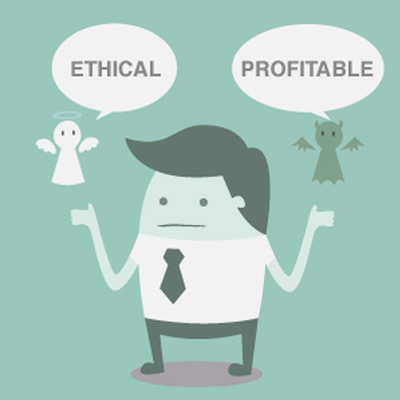“You don’t have to choose between doing well and doing good” – this is Umano’s mission statement to promise to give a backpack full of school supplies to disadvantaged kids for every piece of clothing they sell. This spirit of social entrepreneurship sure is making a positive social impact and creating a chain of empowerment. Yet, when it came down to making it a “bigger business” with higher profits, would CSR become compromised and diverge from the company’s core value?
The founders of Umano are Brothers Jonathan and Alex Torrey made their first appearance on the American reality TV show “Shark Tank” back in 2016. The brothers started Umano to both empower and help kids. When they entered the Tank, they sought $150K for 15% of the business.
Their business model is straight-forward, through a 5-step process called the Virtuous Cycle:
- They hand-deliver backpacks full of art supplies to kids through their giving partners.
- Their team draws with those kids and empowers them to unleash their creativity.
- Drawings go back to Umano HQ, where they select and curate the kartwork collection.
- They screen-print each freakishly-soft tee by hand in their in-house print shop.
- You purchase products to showcase and wear kids art.
And this process repeats. For every product you purchase, you give a future trip to empower more kids. Sounds pretty cool right? Makes you feel like you are making a positive impact while still keeping your fashion in check.
But what if the vision of a larger and more profitable business outgrows the social entrepreneurial endeavors?
This is exactly the dilemma Umano faced. The partners realized that the Umano model of social entrepreneurship was proven to work at a smaller, safer level, and it couldn’t sustain a fast growing, big business that could be scaled to have a really big impact.
So they decided to discontinue the brand.
I am sure there are many more complications behind the scene. However, in my opinion, this places a big question mark on the authenticity of the company. One of the reasons that the Torreys brought up for the discontinuation of the brand was “fundraising”. Fundraising for social enterprise is a process of dedication, commitment, negotiations and hard work. It is rarely a one-time deal and it often involves multiple and on-going rounds of fundraising.
The company has just started in 2016, and they are already calling an end.
At the end of the day, perhaps you do have to choose between doing well and doing good?

robertleung
October 9, 2017 — 9:11 pm
This was a really interesting read. It leads back to our in-class discussions about CSV and CSR. This business model appears to be a case of CSV.
I watched the video you embedded and read the company’s website, but they are not transparent about why they shut down. Mark Cuban and Lori Greiner would not have gave them a deal if they felt the company’s business model and CSV was not scaleable. I wish we knew if scale of operations was a major reason in why they decided to close.
Aylin Senem Piskin
October 22, 2017 — 9:38 pm
Very interesting… I loved the idea and what they tried to do. I think there is a lot of initiatives that try to supply some basic necessities to people in need like clean water or a pair of shoes or food. However, donating art supplies is a different idea that can potentially impact a lot of kids in a positive way. I feel bad they had to shut down the business but I wonder why.
I think transparency is a big problem with businesses that aims for sustainability. Even when buying a pair of Toms, I ask myself, where does the pair that I donated go? Does it really go to someone in need?
Anna
December 9, 2020 — 5:51 pm
I absolutely hated this idea and this company. Exploitative to children, who get a $4 backpack and 15 minutes of fame and lose the rights to any artwork they had, while these guys made $50/tee. Glad they’re done, there are much worthier causes out there.